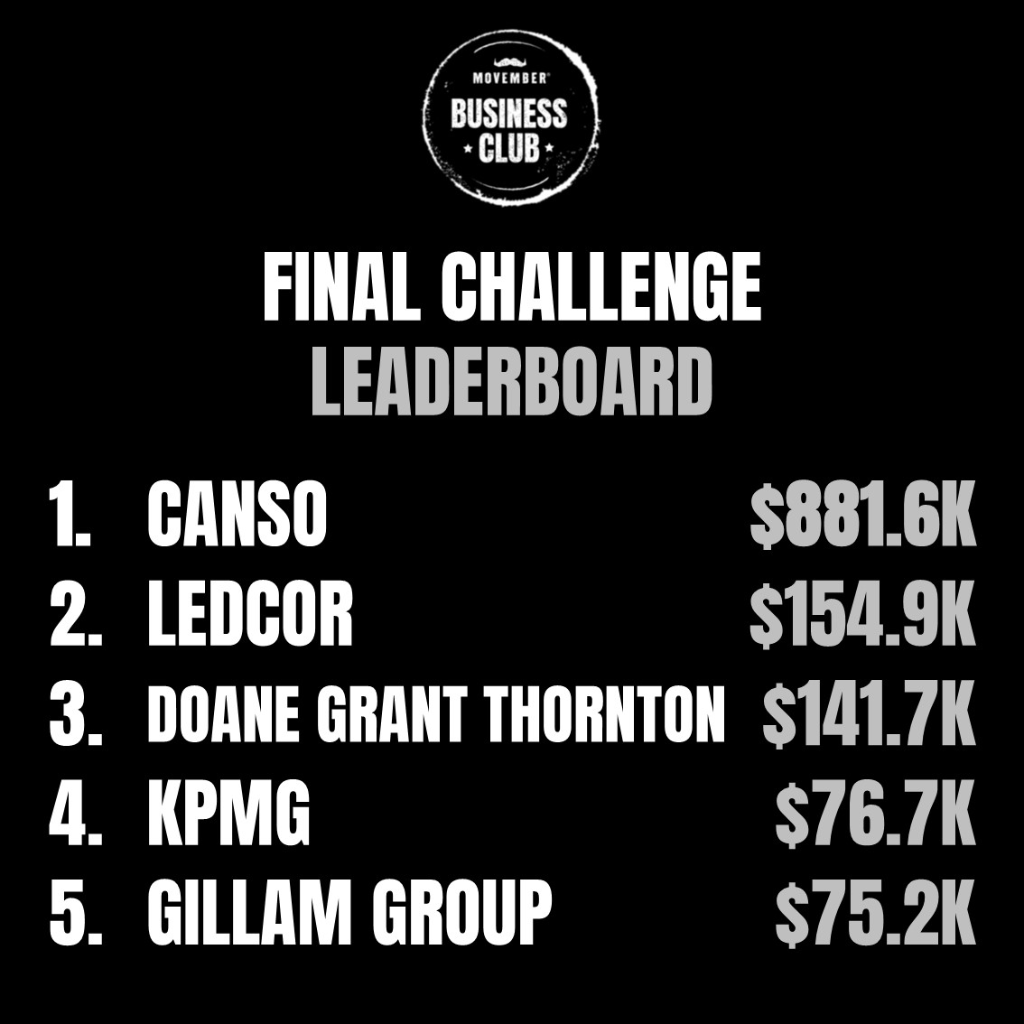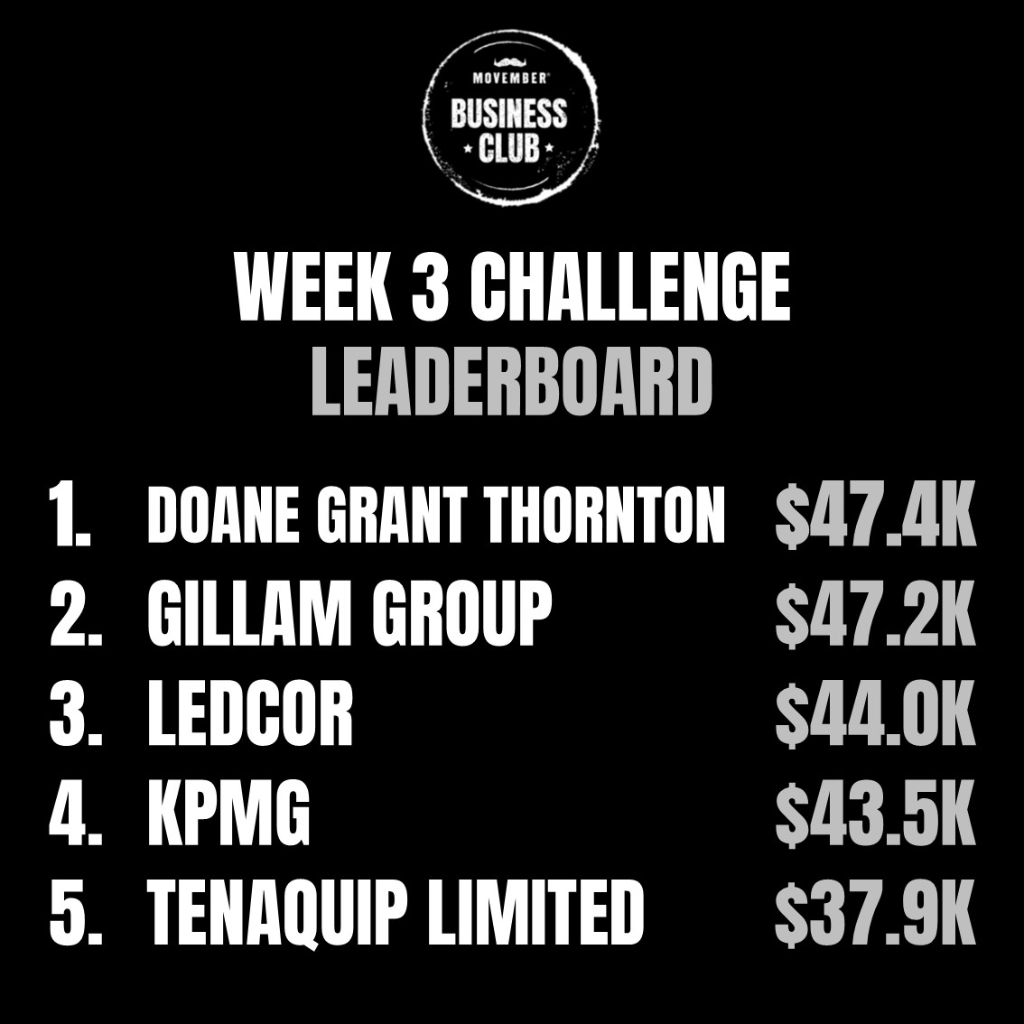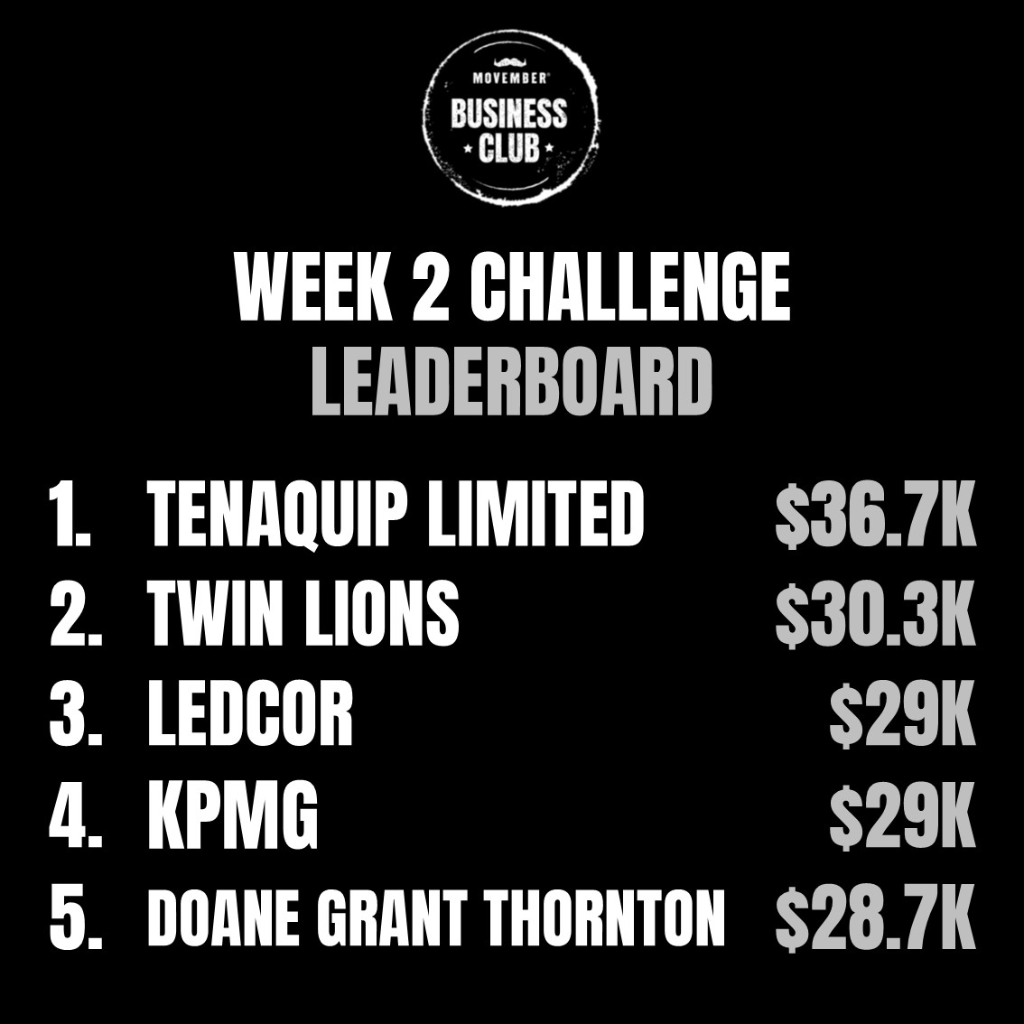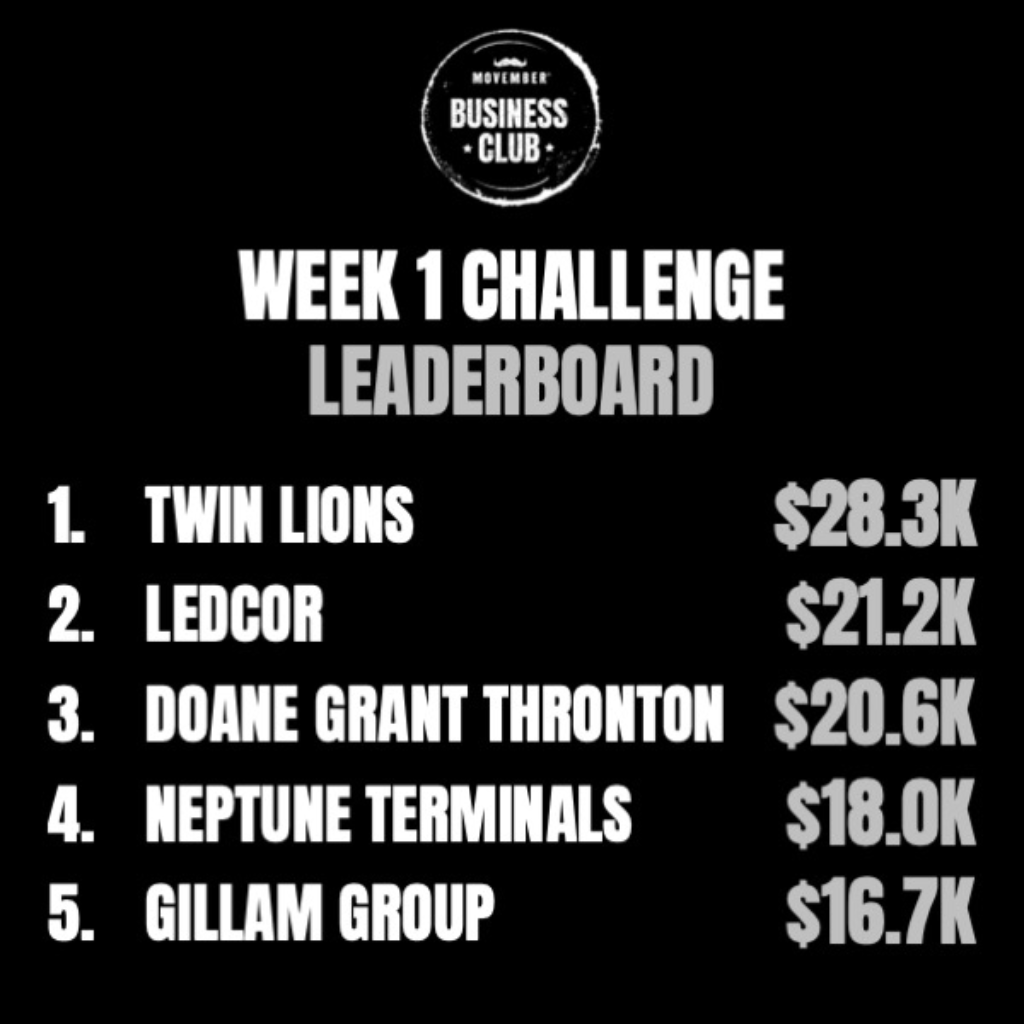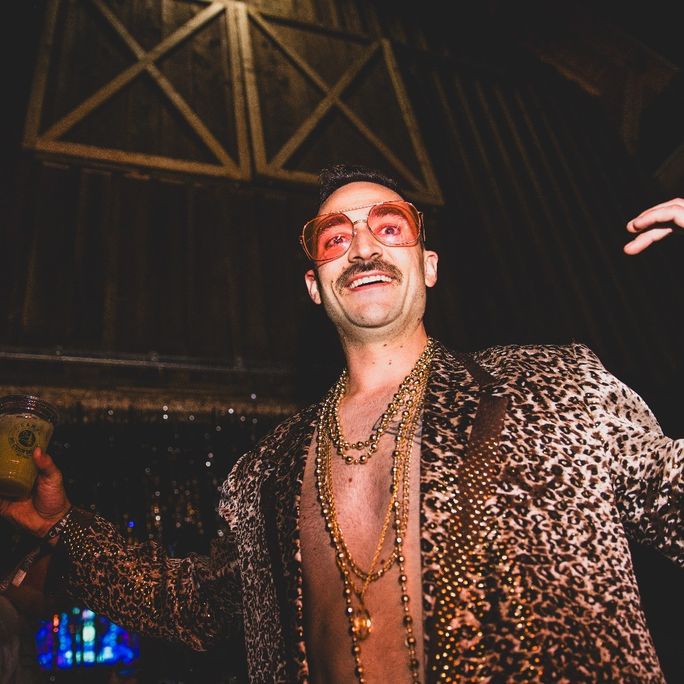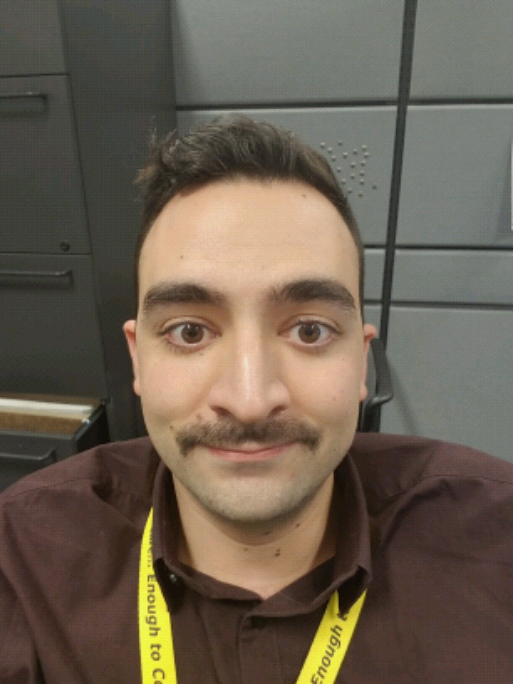We’re proud to announce the final results of the 2025 Movember Business Club — and what an incredible campaign it has been!
This year, Canada’s business community once again demonstrated its remarkable generosity and leadership. Together, Business Club teams raised an extraordinary $2,873,712 for men’s health, proving just how powerful this sector can be when it comes together with purpose.
2573 participants + 368 Teams rallied all month long — a tremendous show of commitment, teamwork, and impact.
Now, to crown our champion.
With $881,632 raised, Canso is officially our 2025 Movember Business Club Champion and top fundraising team in the world.
A special shoutout as well to our top individual fundraiser, John Carswell, who raised over $487,870 this year. His extraordinary leadership and long-time dedication to Movember continue to make a huge impact.
And while Canso takes the trophy, this was a competitive leaderboard. Ledcor and Doane Grant Thornton closed strong to claim second and third place, followed by impressive performances from KPMG and Gillam Group, rounding out the top five.
A massive thank-you to every company, captain, Mo Bro, and Mo Sister who took part. The impact you’re making on men’s health is real — and it starts with leaders like you.
Thank you for helping build a healthier future for men.
United We Mo.
getting involved




